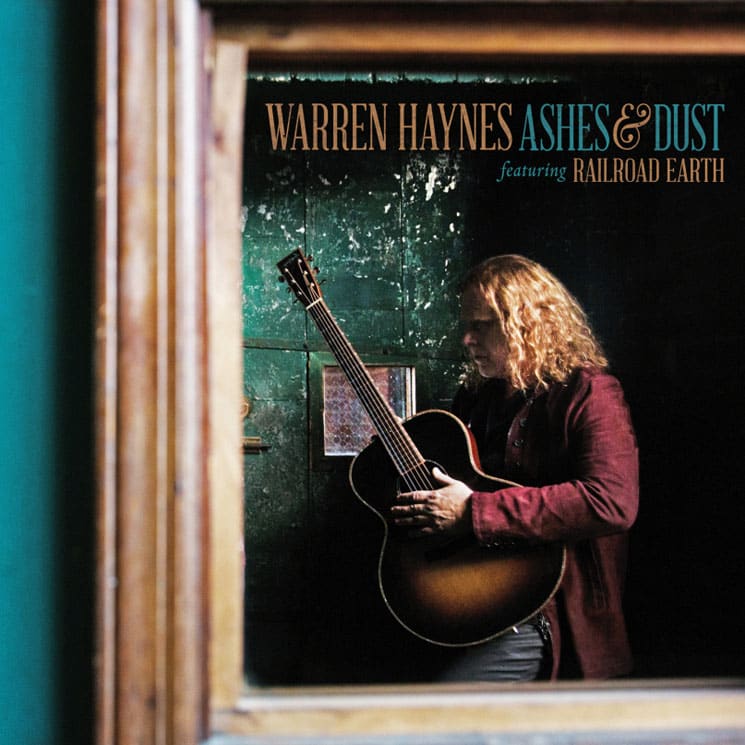Even though he was the key catalyst of the Allman Brothers Band's post-1989 resurgence, Jerry Garcia's replacement in various incarnations of the Grateful Dead, leader of second-generation Southern-jam rock institution Gov't Mule and is one of the finest guitarists in the world, the term singer/songwriter still isn't exactly synonymous with Warren Haynes. Yet with his wonderful Americana-flavoured and song-oriented third studio solo album, Haynes reveals himself as a masterful storyteller in the best of the folk tradition.
Backed by New Jersey-based Americana band Railroad Earth, Ashes And Dust comprises a backlog of songs different from both the ABB and Gov't Mule, one of which ("Is It Me Or You") is 30 years old and sets a plaintive mood immediately with rustic fiddle and banjo, as Haynes asks with his gritty voice, "Is It Me Or You, That's Killing You Baby?" "Coal Tattoo" and "Company Man," meanwhile, are poignant snapshots of rural, working class life. The latter, a tribute to Haynes' father, is the album's standout track, telling of a southern man who refuses to relocate his family when his job is shut down and "never thought he'd be starting over at this age, taking shit from a punk half my age" when he's forced to work in a factory.
"New Years Eve" is an intimate and wistful examination of loneliness and loss, and the guitar and mandolin textures of "Hallelujah Boulevard" underscore its theme of lost souls seeking redemption. Lest Mule and Allman Brothers fans be disappointed, the eight-minute-plus "Spots Of Time" (co-written with the Dead's Phil Lesh and featuring Allman bassist Oteil Burbridge and percussionist Marc Quinones) is a delightful Latin-tinged excursion, while a duet with Grace Potter on a cover of "Gold Dust Woman" doesn't improve on the original and is the album's only weak spot.
Overall, Ashes And Dust is undeniable proof of Warren Haynes' growth as a songwriter and an affirmation of his continuing successful eclecticism.
(Provogue/Mascot)Backed by New Jersey-based Americana band Railroad Earth, Ashes And Dust comprises a backlog of songs different from both the ABB and Gov't Mule, one of which ("Is It Me Or You") is 30 years old and sets a plaintive mood immediately with rustic fiddle and banjo, as Haynes asks with his gritty voice, "Is It Me Or You, That's Killing You Baby?" "Coal Tattoo" and "Company Man," meanwhile, are poignant snapshots of rural, working class life. The latter, a tribute to Haynes' father, is the album's standout track, telling of a southern man who refuses to relocate his family when his job is shut down and "never thought he'd be starting over at this age, taking shit from a punk half my age" when he's forced to work in a factory.
"New Years Eve" is an intimate and wistful examination of loneliness and loss, and the guitar and mandolin textures of "Hallelujah Boulevard" underscore its theme of lost souls seeking redemption. Lest Mule and Allman Brothers fans be disappointed, the eight-minute-plus "Spots Of Time" (co-written with the Dead's Phil Lesh and featuring Allman bassist Oteil Burbridge and percussionist Marc Quinones) is a delightful Latin-tinged excursion, while a duet with Grace Potter on a cover of "Gold Dust Woman" doesn't improve on the original and is the album's only weak spot.
Overall, Ashes And Dust is undeniable proof of Warren Haynes' growth as a songwriter and an affirmation of his continuing successful eclecticism.
